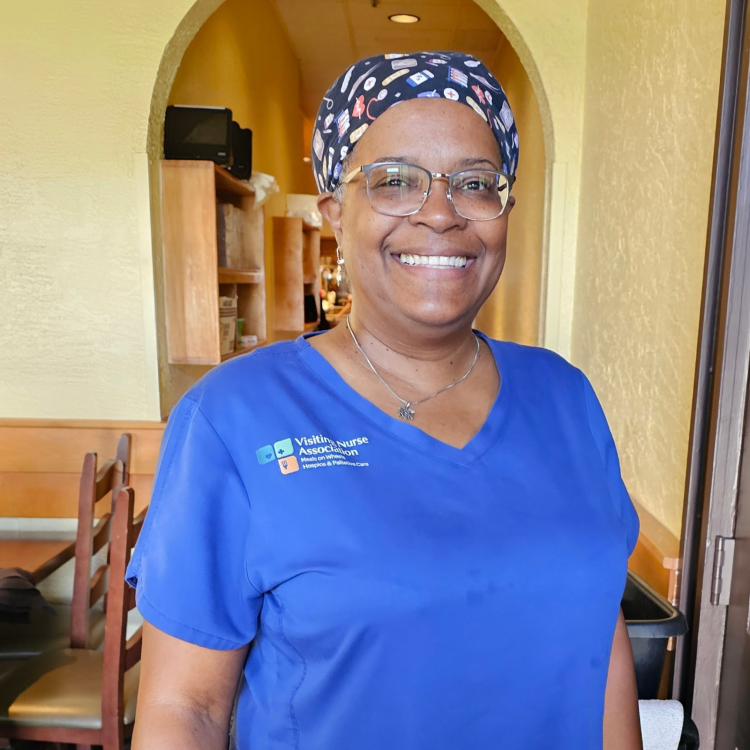For Damita Ware, becoming a hospice nurse was her second-and last-career. After nearly 13 years at The Ford Motor Company, Damita, at age 40, decided to pursue her dream of nursing. She’s never looked back.
The Visiting Nurse Association’s Hospice program was where Damita’s heart found its true calling. As an Admissions RN at the Denton office, she thrives in this compassionate role, knowing the deep responsibility of being the first person a family encounters when they enter hospice care. “I love this role because it allows me to meet the family, set the tone, and make it clear that we are here for them,” Damita says. She is a listener, offering empathy, understanding, and unwavering support as families face the overwhelming emotions of caring for a loved one at the end of life.
When she enters a home, Damita’s goal is to create a space where families can talk openly and ask all the questions on their minds. “I give them the floor for 45 minutes—making eye contact, answering every question they have, and speaking highly of our team,” she says. “It’s important that no one ever feels they need to question why we’re here. We’re here because we care. Everyone, from the nurses to the home health aides, has empathy and compassion for what the family is going through.”
In her work, Damita sees herself as much a student as a teacher. “We’re always educating, but I learn so much from the families, too,” she reflects. “I’m humble, and I go in to learn from them as much as I teach.” Her approach is grounded in respect for the lives and stories each family carries with them. She takes time to truly listen to their concerns, fears, and needs, creating a safe space where they can ask questions and express their emotions. “I want them to know we’re here for them, and I get to be the one to set that tone,” she reflects.
While it is challenging to face death so frequently, she finds a way to deal with the grief. “I still cry with patients and their families,” she admits. “It’s hard, but I’ve learned that we are all going to die, and it’s still sad. It’s made me stronger, though—more compassionate, more patient.”
